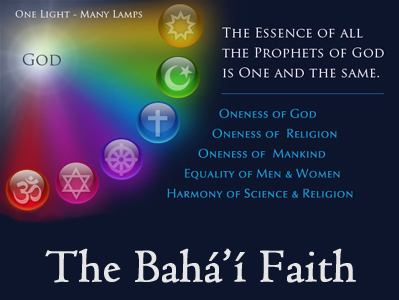The concept of God has varied significantly across different cultures and philosophies throughout human history. Each religious tradition often presents its own interpretation, replete with distinct characteristics and attributes. However, what if one were to encounter a faith that challenges conventional understandings of divinity? What if the very God one has been taught to believe in does not align with the principles espoused by another belief system? This notion forms the crux of a compelling dialogue within the Bahá’í Faith, which offers a unique perspective on God and spirituality.
This article delves into the intriguing question: “What does it mean to not believe in that God either?” By examining the Bahá’í teachings, we can explore how this faith reimagines the concept of God in a manner that is both inclusive and progressive.
1. Understanding God in Bahá’í Teachings
At the heart of the Bahá’í Faith is a conception of God that transcends anthropomorphic depictions. God is viewed as an unknowable essence, beyond the grasp of human comprehension. In Bahá’í theology, God is described as the “Incomparable, the All-Glorious” and the “Creator of all things.” This characterization emphasizes God’s transcendence, inviting followers to re-evaluate not only their understanding of divinity but also their relationship with the divine.
The Bahá’í perspective encourages adherents to cultivate a personal relationship with God through prayer and meditation. However, this relationship is not predicated on dogma or rigid beliefs. Instead, it is rooted in an individual’s quest for truth and understanding, promoting a sense of spiritual autonomy that liberates believers from the constraints of traditional religious frameworks.
2. Revelation as a Dynamic Process
Central to the Bahá’í Faith is the concept of progressive revelation. Unlike the idea that truth is static and contained within one holy book or tradition, Bahá’í teachings assert that spiritual truth evolves over time through a succession of divine messengers. Figures like Moses, Jesus, Muhammad, and Bahá’u’lláh, the founder of the Bahá’í Faith, are viewed as manifestations of God, each contributing unique insights into the divine will.
This progressive approach challenges the notion of ultimate religious truths and, by extension, the God that might define those truths. It encourages exploration, dialogue, and respect for the spiritual insights of all religions, compelling followers to acknowledge a plurality of beliefs rather than adhering strictly to one framework. In this light, the claim of not believing in ‘that God’ becomes an affirmation of an evolving understanding of the divine.
3. God and Humanity: Interconnectedness
In the Bahá’í worldview, the relationship between God and humanity is profoundly interconnected. Bahá’ís believe that the purpose of human existence is to recognize and worship God while simultaneously serving humanity. This dual focus on divine connection and social responsibility is what sets the Bahá’í Faith apart from many other traditions.
The concept of service to humanity challenges oppressive structures that may arise from a singular belief in a particular version of God. Instead, it advocates for a communal spirit, fostering unity and collective advancement. By encouraging acts of kindness and altruism, Bahá’ís manifest their understanding of God in tangible ways, thereby creating a society reflective of divine attributes.
4. The Unity of Religion
The Bahá’í Faith postulates that all religions share a common foundation, a principle that further complicates the notion of a singular divine truth. This belief directly addresses the question of differing gods across faiths. Bahá’ís view religious diversity as a symbol of humanity’s varied paths toward the same ultimate reality. The teachings assert that just as the different seasons are necessary for a flourishing garden, so too are the various religions essential for the spiritual growth of humanity.
This perspective allows for a respectful understanding of the divine in various cultural contexts. Rather than dismissing differing beliefs as erroneous, Bahá’ís advocate for an appreciation of the shared essence that courses through all religions. This principle not only enhances interfaith dialogue but also fosters an environment where mutual respect prevails.
5. Societal Implications of Bahá’í Teachings
By articulating a vision that critically engages with the idea of God, the Bahá’í Faith proffers solutions to contemporary societal challenges. Concepts like equality of all peoples and the elimination of prejudices are woven into the fabric of Bahá’í teachings. The faith champions education, advocates for gender equality, and promotes global unity as expressions of divine will, reflecting a nuanced understanding of God’s purpose for humanity.
Furthermore, the Bahá’í commitment to consultation—a method of collective decision-making—echoes the importance of diverse perspectives in arriving at truth. This collaborative approach diffuses dogmatism, allowing for a dynamic interplay between personal beliefs and collective understanding of the divine.
Conclusion: Embracing a New Understanding of God
The Bahá’í Faith invites followers to question established religious constructs. By reframing the concept of God within a broader, more flexible framework, Bahá’ís are able to engage with spirituality in profound and transformative ways. This understanding transcends traditional barriers, promoting unity and collaboration among diverse religious expressions.
Ultimately, to not believe in ‘that God’ means to acknowledge the richness of spiritual exploration and the potential for discovering a more profound, inclusive approach to the divine—a vision that resonates deeply within the heart of the Bahá’í teachings. As this dialogue continues, it challenges us all to consider the multiple dimensions of spirituality, inviting a collective journey toward understanding and unity.
